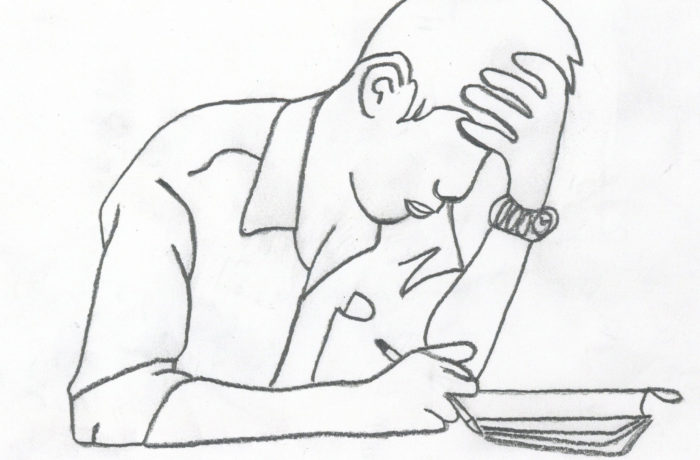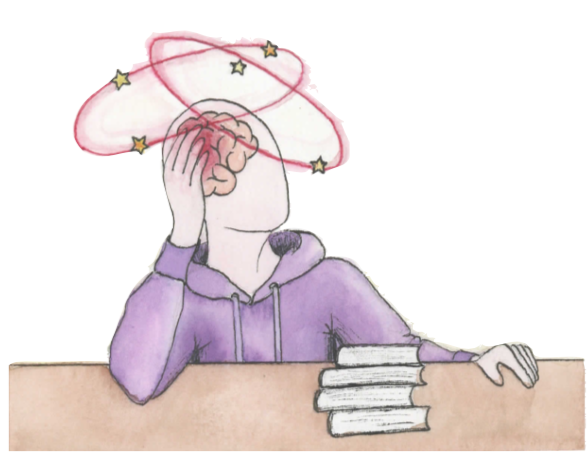By Meg Friel
News Editor
Clea Edelman ‘21 went through a breakup with her long-distance high school boyfriend in the middle of her freshman year. Their breakup soon turned into a makeup as the two couldn’t seem to let go of what they once had, despite serious problems within their relationship — problems like him ignoring her for weeks at a time, not being able to communicate their feelings, and an exhaustive sense of control. A year later, the two finally called it what it was – unhealthy, and over.
The ugly form that consumes us in the midst of a breakup leaves no ex-partner a stranger to the mess that comes with leaving a relationship. Obsessive texting, Instagram stalking and over-analyzing the relationship can easily turn heartbreak into addiction. So, why do we continue to torture ourselves by obsessing over these relationships, even after we know they’re no longer healthy? What is the remedy to this addiction?
“I wouldn’t define it as unhealthy in the moment, but now I’m starting to see it as unhealthy,” Edelman said. “I was just so involved. I was never concentrating on myself, it was always about him. He would sometimes get mad at me for little things even though I didn’t do anything wrong, and he would just get so aggressive with his tone and make me feel awful. There were times when we were dating and he wouldn’t talk to me for like, a week. He would always send me pictures with other girls.”
Although being surrounded by friends and family that worried over her estranged “relationship,” Edelman couldn’t seem to break ties with her ex.
“It was a huge part of me,” Edelman said. “I wasn’t ever thinking about myself, it was always him. When we had good times, it was good, and I held onto those good times even though they were really rare, because I like to see the good in people. I. I wouldn’t have left him without my friends really saying something.”
Molly McCabe ‘21 experienced a similar situation when she and her boyfriend broke up in the fall. After countless nights of having to stay home as she watched her friends leave for pregames and parties, relentless fighting, and suffocating control, their relationship was no longer maintainable.
“He was very controlling and possessive,” McCabe said. “I was never really allowed to do anything with my friends or see my friends, or sometimes even my family. But, he would treat me right sometimes, so I would value those and put those before all of the other times he treated me badly.”
Why can’t you leave?
It can be difficult to leave a relationship, even after reaching the point where the relationship turns sour, said Ryan Stanton, assistant director of personal counseling at Bergeron Wellness Center. This addiction, much like any other, is one that involves many elements that can make it difficult to stop.
The reason we often stay in unhealthy relationships is because we can’t let go of the good things that the relationship brings us, even if they are outweighed by the bad, Stanton said.. “Sometimes there’s some things we get out of being in a relationship, even if it’s unhealthy. These are compelling, and make it hard to leave.”
The definition of what makes a relationship unhealthy ranges from partner to partner. However, in order to define what an unhealthy relationship is, it’s important to first begin with what makes up a healthy relationship.
“[A healthy relationship] looks at equity and reciprocity and sharing of power, sharing of time, sharing of resources, and communicating in a way that feels open and supportive,” Stanton said. “When control makes its way into that recipe, then you end up with some problems, especially when it’s lopsided.
“We bounce back and forth in relationships with who’s sort of taking the lead and who’s taking the slightly back stuff, but if that’s not a dance – kind of going back and forth with equity and fluidity – then there’s a problem there,” Stanton said.
“Even when you identify that your relationship may be harmful, it’s often difficult to make the decision to leave it,” Stanton said.
You might stay in a relationship longer than you should because that was the type of relationship that was modeled to you in childhood or because you had another relationship that was similar, said sociology and anthropology professor Amy Redman..
. “That’s something that comes to my mind in terms of what modeling they’ve seen and the implications that might play out for someone in their relationship.”
When things go too far
It’s important to understand when the line crosses from unhealthy to unsafe. Physically, sexually, and emotionally abusive relationships can sometimes be extremely difficult to leave, because you may feel trapped or in danger. However, there are resources for people in abusive relationships looking for support to leave.
“Thinking about how to do that with support is really important, whether you get support from friends, family, counseling, places like HopeWorks downtown is key,” Stanton said. “I’ve worked with people who were in domestic violence situations, either as the victim or the perpetrator, and really noticed that a lot of this comes down to power and control. On the extreme end, where you’re talking about physical violence, sexual violence, emotional abuse, there’s a real element of power which is often the key piece. It can be much more nuanced than that, much more subtle.”
“There’s definitely a difference between possession and love,” McCabe said. “If you’re not allowed to see your friends, or your parents, that’s definitely a warning sign. You don’t just want to give up your life for someone else.”
For those feeling like they have an addiction to an unhealthy relationship, and have difficulty cutting ties with a relationship they know isn’t good for them anymore, Edelman offers advice.
“Just sit down with people that you can talk to,” Edelman said. “Talk to people other than your significant other. You have to love yourself before you can let someone else love you.”
When you’re ready, seek professional help. If you or someone you know is struggling to leave an abusive relationship, reach out to the Bergeron Wellness Center, Hope Works at (802)-863-1236, or the National Domestic Violence Hotline at 1−800−799−7233.
The Relationship Test
The One Love Foundation, an organization devoted to educating young people about healthy and unhealthy relationships, uses 10 signs of an unhealthy relationship to help better distinguish what an unhealthy relationship is.
- Intensity
- Jealousy
- Manipulation
- Isolation
- Sabotage
- Belittling
- Guilting
- Volatility
- Deflecting responsibility
- Betrayal


